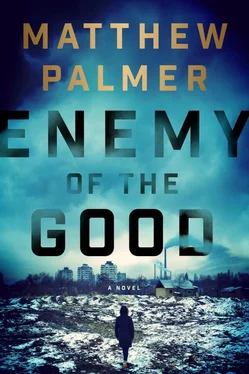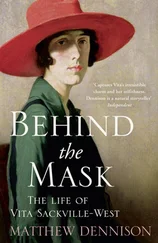“Not today. I want you to get a message to Valentina Aitmatova. It’s urgent.”
The woman’s eyes narrowed.
“Why are you doing this?” she hissed. “You’ll get us both killed.”
“They have Seitek. They took him last night. I was there. He’ll be in Number One by now. I need Valentina. And I can’t get to her without your help. I know this is dangerous, but if we don’t take a risk now we have nothing.”
Kate pulled a small envelope out of her purse and set it on the counter next to the newspaper. It was unmarked.
“Please,” she said.
The newsstand owner looked at the envelope as though it were a scorpion.
“Without Seitek,” she whispered, “all is lost.”
“Yes.”
“And if I do this thing, you can save him?”
“Yes,” Kate lied.
The woman nodded, more to herself than to Kate. The look of anxiety on her face faded and what took its place was less determination than fatalism. Somewhat tentatively, she put one hand on top of the envelope and pushed the copy of the Times of Central Asia toward Kate.
“On the house,” she said. “Just this once.”
“Thank you.”
_____
Once more, Kate could do little but wait. She took the bus to Prison Number One on the eastern edge of the city. The bus offered security through anonymity. Kate dressed local and looked like just another middle-class resident of Bishkek rather than an American diplomat. As a further precaution, she kept her cell phone batteries separate from the phones. It was still safer to carry them with her. The embassy had a spare set of keys to her apartment.
She had not been back to the prison since the pitched battle between the Special Police and the Women in Black. Prison Number One was a complex of buildings set behind a concrete wall, high and thick and topped with coils of razor wire and bits of broken glass. The main gate was closed. It was made of black steel bars oriented vertically. The gate was built on runners that let the guards open it by sliding it to either side on a steel track embedded in the road. A smaller door built into the frame could be opened separately to admit people rather than vehicles. The aluminum guardhouse was manned by two Special Police wearing ballistic vests and watching a football game on a portable television with a rabbit-ears antenna.
A small sign printed on sheet metal was tacked to the wall by the side of the gate. It announced the identity of the building as the property of the Bishkek Prison Authority. It was superfluous. The grim complex was unlikely to be mistaken for anything else.
Kate walked past the gate without slowing down or betraying any sign that she was especially interested in what was behind the walls. But she could not stop thinking about Ruslan, who at this very moment was likely to be in one of the windowless rooms in the basement level. Maybe it was a dark cell with nothing but rats for company. Or maybe they had already moved him to one of the interrogation rooms with bright lights rather than darkness to disorient and terrify.
She circled the prison. There was a gate on the back side that looked identical to the one in front. Through the bars she could see the prison buildings, blocky and ugly. The doors were all steel and the windows were all covered with bars. If there was a weakness, it was not immediately obvious. As she walked past the back gate, one of the guards stared at her and Kate thought he sensed something suspicious about her behavior. But then he made a few grossly exaggerated kissing sounds in Kate’s direction, adding an obscene hip thrust to make his point unambiguously clear. He was just an asshole then. Nothing special to worry about.
She thought about reinserting the batteries in her phone and taking a few surreptitious pictures of the prison, but she had to assume that the security services were tracking her phone, and it did not seem worth the risk of revealing her whereabouts. Instead, she worked to commit the small details to memory. Where did the guards stand? How many were there? Where were the cameras?
Kate did not yet know how she was going to get inside the prison. But she knew one thing, and she knew it with absolute certainty. She was not going to leave Ruslan in there to rot. Or to die. Not alone at least.
_____
At seven o’clock that evening, Kate walked through the gate into Kara-Su Park and followed the path to the bridge where she had met Valentina a few weeks earlier. It was dusk, and there were not many people in the park, but it was still light enough to see. Kate did not know how long it might take her message to get to Valentina, or whether Val would be able to come at the appointed time, or whether she would be willing to come at all. Would Val and the others blame Kate for what had happened? Hamid had accused her of killing Albina. What would he say now?
Kate was alone under the bridge. The shadows were deeper here and she stood against the wall where no one walking past would see her. The stone walls were damp and rough to her touch. She wondered if the walls of Ruslan’s cell were made of the same stone. Maybe they were concrete or cinder block. But she was certain that they were cold. Dusk turned to night quickly and the shadows thickened and merged. Within twenty minutes, it was too dark to read the graffiti on the walls. As the last of the sunlight dissipated, it grew noticeably colder and Kate zipped her thin jacket tight against her throat.
There was no sign of Val. Kate would try again tomorrow night and the night after that and every evening until she was forced to leave the country. She had to believe her message had gotten through. There was no Plan B.
As she turned to leave, she heard a voice behind her.
“Kate?”
She turned and there were two figures silhouetted against the mouth of the tunnel on the far side of the bridge, the sky behind them just barely lighter than the darkness of the underpass.
“Val? Who’s with you?”
Kate walked toward them and needed to get within ten feet before she recognized Daniar Nogoev. A feeling of relief washed through her. Val had come. Kate might not know what to do, but at least she was no longer alone.
Val hugged her quickly but fiercely. Nogoev’s greeting was distant but not hostile.
“What happened, Kate?” Val asked.
She told them, leaving out no detail and not seeking to hide or even downplay her own role in leading Chalibashvili and the Special Police to the Boldu safe house. By the time she had finished, hot tears of shame had wet her cheeks.
Val took her hand.
“It’s not your fault.”
“Of course it’s her fault,” Nogoev said, his tone matter-of-fact. “But that doesn’t really matter. Fault finding is a waste of time, of interest only to housewives and Bolsheviks.”
“I’m neither of those,” Kate said. “But it matters to me. I’m sorry about your friend.”
“Murzaev knew the risks. Ruslan was the only one we couldn’t spare.”
“So what do we do?” Val asked.
They were quiet as they considered the enormity of that question.
“We rescue him,” Kate said emphatically when it became evident that neither Val nor Nogoev seemed inclined to offer that answer independently.
“From Number One?” Val asked, incredulous.
“Yes.”
“How?”
“The Scythians,” Nogoev answered.
“We just assault the prison? Maybe we could ride in on horseback with bows and arrows. I’ll ride naked like Lady Godiva.”
“I’m not certain that would have the intended effect.”
It was dark in the tunnel, but Kate could see Nogoev’s sly smile in the tone of his voice.
“So how would you do this in a way that doesn’t end up with your idealistic youngsters shuffling off this mortal coil?” Val asked.
Читать дальше












